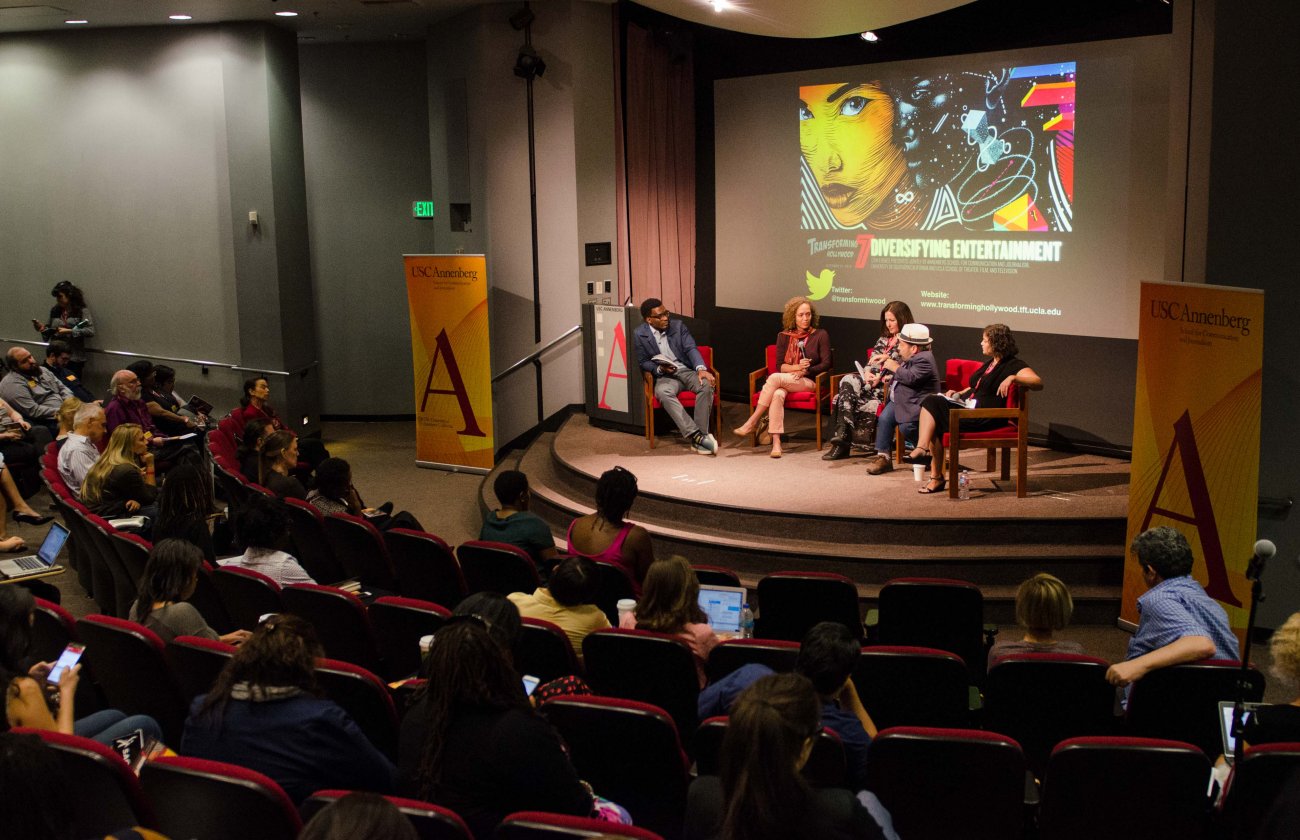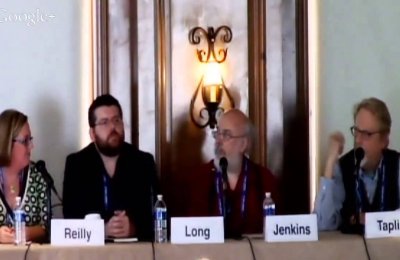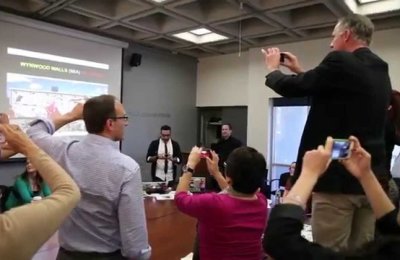Pivot, Participant Media’s new television network for millennials (18-34), has announced the details of a long-term, network-wide social action initiative focusing on digital and media literacy. The campaign is launching with the help of USC Annenberg Professor Henry Jenkins’ Media Activism and Participatory Politics (MAPP) project, which will help develop a curriculum to present literacy fundamentals. The multi-platform campaign named Eyes Wide Open continues the tradition of Participant Media, an award-winning global entertainment company that announced plans to expand their footprint into television late last year with Pivot. Taking a cue from the company’s mission to provide “entertainment that inspires social change,” Pivot’s initiative asks its audience to consider their sources of information and media they consume, recognize their role as source when they produce or share content and explore the trade-offs inherent to giving up personal information online. "Audiences want content that is credible, accurate and transparent," said Jim Berk, CEO of Participant Media. "By integrating digital and media literacy into Pivot's programming and on-air experience, we hope to become a trusted source for our viewers." Eyes Wide Open will be anchored by a series of collaborative relationships with organizations in the areas of news, policy-making and education, including ABC News’ “Nightline”; the National Association for Media Literacy Education (NAMLE); Business for Social Responsibility (BSR); the Center for Information and Research on Civic Learning and Engagement at Tufts University (CIRCLE); and the USC and MacArthur Research Network on Youth and Participatory Politics. Evan Shapiro, president of Pivot, said: “The results of this study speak loudly to the need for this initiative. While millennials are the first digital natives, they are also overwhelmed by the volume of information and misinformation online, and by the absolute loss of privacy that's come in the digital age. As creators of television for the next generation, we feel responsible to offer tools to help them deal with the challenges they face.” USC Annenberg’s role comes in with the development of a unique college-level curriculum that will use media to present digital and media literacy fundamentals, developed in association with the MacArthur Research Network on Youth and Participatory Politics and Professor Jenkins’ Media Activism and Participatory Politics (MAPP) project (available in 2014). Components of the campaign on Pivot include the August 11 U.S. television debut of “Terms & Conditions May Apply,” which The New York Times called “quietly blistering;” an original half-hour documentary, “Eyes Wide Open,” premiering September 11; the premiere episode of Meghan McCain’s new series “Raising McCain” dedicated to privacy in the digital age; and a series of original short films about digital and media literacy airing throughout the coming year. Online, Pivot launched their digital and media literacy hub, www.pivot.tv/eyes, a comprehensive resource for tools and information that include Pivot’s transparent advertising policy; relevant news articles and features, powered by takepart.com; a Twitter aggregator showcasing the latest headlines from leading digital and media literacy organizations; and a quiz to test your knowledge of the subject matter. The site went live with a specific digital and media literacy study of 800 millennials that was conducted for Pivot by Miner & Co. Studio in association with Beagle Insight with support from CIRCLE. Highlights from the study include:
- 80 percent of millennials say it’s hard to know which media sources you can trust to deliver the truth
- Almost three out of four millennials (72%) consider themselves a valuable source of news and information
- More than one in three (38%) frequently share news or information without checking the source
- More than half (56%) lack confidence in the truth and accuracy of news and information that they share online
- Nearly one in three (29%) say they have misled friends and family through misinformation they have posted
- Three out of four millennials (76%) say that online privacy is dead
Chad Boettcher, Participant’s EVP, Social Action & Advocacy, said: “The ‘media revolution’ is transforming our world today – in both good and arguably not-so-good ways. Our goal is to demystify some of the stigma around digital and media literacy and give millennials a trusted resource – one that provides a unique forum for conversation and provides them with tools that will help them protect their personal information and give them insight into how they can help protect those around them.” Other campaign elements are: Co-production relationships: An ongoing commitment to collaborations with other trusted sources in media covering digital and media literacy issues will launch with ABC News/“Nightline” and Pivot/“TakePart Live,” with both networks jointly airing segments and cross-promoting on-air and online. Six short-form investigative segments will air between August 1, 2013 and July 31, 2014. Talent and/or producers from “Nightline” will appear on “TakePart Live” when the segment airs. Original specials: Creation of three 22-minute documentaries covering critical issues in the digital and media literacy landscape – the first special, airing on September 11th in association with NAMLE, will introduce digital and media literacy to the audience by making it relevant, personal and eye-opening. Original series integration: In addition to “Raising McCain” dedicating the September 14 premiere episode to exploring the meaning of privacy in the digital age, “TakePart Live,” launching August 1, continues the conversation with a forum on a range of issues and experts five nights a week. Responsible advertising policy: To promote a dialogue among millennials, advertisers, and Pivot about the role of advertising in digital and media literacy, Pivot worked with BSR to develop a unique advertising policy centered around four principles: transparency, free speech and freedom of choice, responsibility, and progress.







